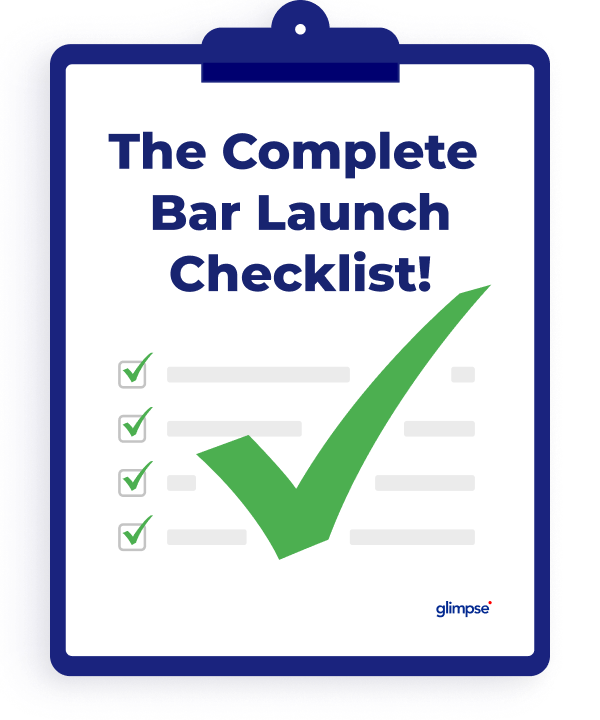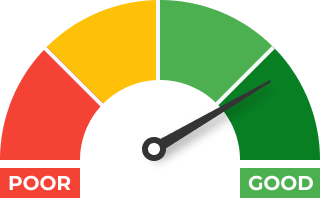Has your dream always been to start your own bar in Texas? Making your dream come true and being your own boss is exciting and profitable. But before you open your doors, you have a lot of work ahead of you. Use this guide as your checklist for the key points to focus on when starting your bar in Texas.
Branding and Concept
To be a success you need a bar brand and concept that stands out from the rest. Why? Because your business plan and marketing strategy are going to depend on this. Your concept needs to be clear and detailed before you start working on the other steps to opening a bar.
Type of Bar
Decide what type of your bar you want to operate. Be creative and stay away from trending styles that are here today and gone tomorrow. Your bar should reflect your dream and unique voice while at the same time be an establishment that’s going to appeal to your target clientele. Consider one of these bar concepts:
- Neighborhood bar
- Brewpub
- Sports Bar
- Cocktail Bar
- Wine Bar
When you know what type of bar you’re going to open you can move on to planning the location, décor, and design that’s going to match the atmosphere you’re trying to create. Your entire brand should be consistent and be focused on providing the best customer experience for your clientele.
Don’t forget to factor in all the small details at this stage, such as the design of your bar menu and staff uniforms.
Drink and Food Menu
Your brand and concept should also include a list of the types of drinks and foods you’ll be serving. Don’t leave these decisions to the last – you’ll want to find liquor and food suppliers as soon as possible so you have a full inventory on hand when you open.
Narrow your menu down to specific brands. Will you serve only local beer and wine or offer a wider selection? If you’re going to be serving cocktails, consider featuring a few signature drinks on the menu along with the popular classics.
Your food menu needs planning as well. Will you serve only finger food and appetizers or feature full dinners? Remember that kitchen size will play a part in this decision. If you’re serving full meals, you’ll need a fully equipped kitchen.
Licensing and Permits
Perhaps the most important step in starting your bar is to make sure you have all the legal requirements and regulations in place. Depending on the type of bar you’re opening, here’s a list of licenses and permits you may need to open a bar in the state of Texas:
Name Registration
When you’ve come up with the perfect name for your bar, you’ll want to get it registered so that it’s protected within the state. You can also trademark the name for exclusive rights and protection by registering on a federal level.
Don’t forget to check for web domain availability and secure it as soon as possible. Having a website is crucial to branding your business and connecting with your customers.
Business Registration
Register your new bar with the Texas Secretary of State. This will include choosing the right business structure for your bar:
- Sole Proprietorship – As a sole proprietor you’ll be entitled to 100% of the profits from your business but you’ll also be responsible for 100% of the debt and risk involved.
- General Partnership – A partnership means that your business will be owned by more than one person. You and your partners will be responsible for debt and risk.
- Limited Liability Company – Setting yourself up as an LLC business allows you to protect your own personal assets should your bar be sued for any reason.
- Corporation – As a legal entity, corporations are owned by shareholders and managed by a board of directors.
It may be more complicated to open your bar as an LLC or corporation, but doing so is the best way to protect your personal assets.
Tax IDs
To get all your legal requirements in order you’ll need to have a good understanding of employer and tax information. To start a business in Texas you’ll need to register to pay taxes. For this, you’ll require a Federal Tax ID Number as well as an ID number issued by the state of Texas. Since you’ll be paying employees, you’ll have to pay employment taxes. To do this you’ll need a Texas Employer Identification Number (EIN).
Liquor License
Any business in Texas that sells alcoholic beverages must have a liquor license issued to them from the Texas Alcoholic Beverage Commission (TABC). There are several different license and permit types available so be sure you’re applying for the right ones applicable for the sale of alcohol in your bar.
Getting your license can take anywhere from 60 days to six months, so it’s important that you get this process started early. Use these steps to apply for a new license:
- Confirm that you’ve registered your business with all the federal and state registration requirements.
- Choose the correct license or licenses for your bar – beer, wine, and hard liquor permits must all be applied for separately.
- Get in touch with the right TABC in the location where you’re opening your bar.
- Complete all the forms needed for certification, including the Prequalification, Business, and Location packets.
- Submit your signed and notarized application to the TABC.
- Check for application status updates to be sure you’re on track for the opening date of your bar.
Food and Beverage Certificate
If you’re selling food in your bar, you’ll need a Food and Beverage Certificate (FB). This certificate, issued by the TABC, will allow you to prepare and serve food in your establishment.
Zoning Requirements
Zoning permits and requirements will vary depending on where in Texas you’re starting your bar. Do your research so that you’re familiar with the city laws and regulations you need to follow, such as sales tax permits, a certificate of occupancy, and zoning permits. If you disregard these requirements, you may be fined.
Music License
Playing music in your bar isn’t as simple as hooking up your own system – you’ll need a license. Consider obtaining a “blanket” license from performance right organizations such as ASCAP or BMI. This will allow you to legally play music from a wide range of artists.
If you plan on hosting live music, you’ll need to have a separate license for this as well. Licensing and permit requirements will vary depending on where your bar is located in Texas.
Hire Employees
You won’t be able to run your bar on your own. You’ll need a strong team of employees behind you if you want your bar to be a success. When hiring your staff, choose employees that will fit into your bar brand and culture.
As you interview potential hires, look for people who are enthusiastic and friendly. Customers want to be greeted and served by bar staff who make them feel welcome. Another quality to look for in your staff is the ability to listen to customers. They should be able to answer questions and provide responsive service even when dealing with difficult customers.
Once you know what qualities you’re looking for in your staff you’re ready to hire for these different positions:
- Bar manager – You may want to manage your own bar, but having a manager on your team can help you with the workload. A good manager should be able to handle all bar operations, including dealing with employees, inventory, purchasing, and marketing. Your manager should also be available to open and close when you’re not there.
- Bartenders – One of the most valuable employees on your team are the bartenders. Not only do bartenders need to be able to mix and pour the perfect drink, but they also need to organize the bar and make sure it’s well-stocked. An ideal bartender is fast, friendly, and focused on providing your clientele with a great customer experience.
- Servers – Servers are responsible for greeting your customers, seating them, and taking and delivering orders. They need to be efficient, fast, and friendly.
Bar Operations
Running your own bar is a lot of work. You’ll need to be able to efficiently take payment from customers and control your inventory. To simplify these processes, there are bar software tools available that can make the job easier for you so you can focus on being a success.
Inventory System
Doing manual inventory not only takes a lot of time it can lead to mistakes. Using software to manage inventory ensures that you always know what stock you have on hand and what you need to order so you don’t have to pull a top-selling item off your menu.
Look for these features in your inventory tool:
- Automatic ordering and invoicing.
- Historical data.
- Sales reports and variance reports.
POS
Investing in a point of sale system not only lets you take payments – it also gives you valuable sales data to analyze later. POS systems can be customized for your own particular setup and come with many different features:
- Credit and debit card preauthorization.
- Splitting the tab between customers.
- Ability to customize tips for employees.
- Report functions that can provide data such as trending sales and a sales comparison across a given time period.
Look for a handheld POS system so your servers can take orders from anywhere in your bar.
Conclusion
The bar industry can be extremely competitive. You can set yourself up for success by having a detailed plan in place before you begin the process of starting a bar in Texas. With an original concept, business plan, and all your legal requirements in place you’ll be ready to take care of the other steps it takes to run a bar. By focusing on the key points in this article you’ll be well prepared for your grand opening day.










 +1 (786) 292-2373
+1 (786) 292-2373 insights@glimpsecorp.com
insights@glimpsecorp.com





